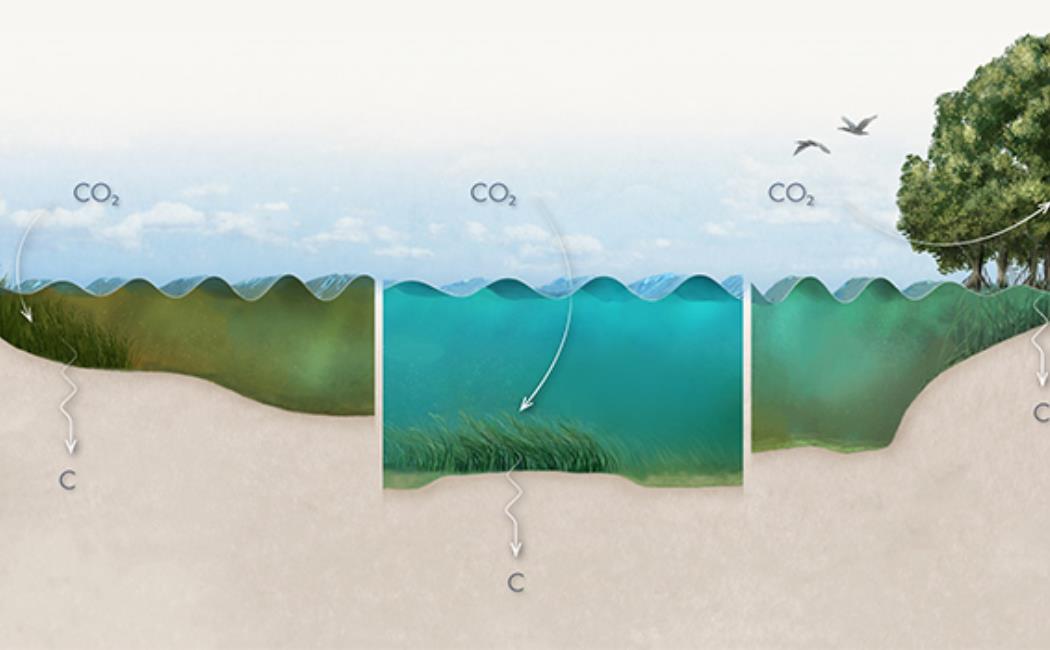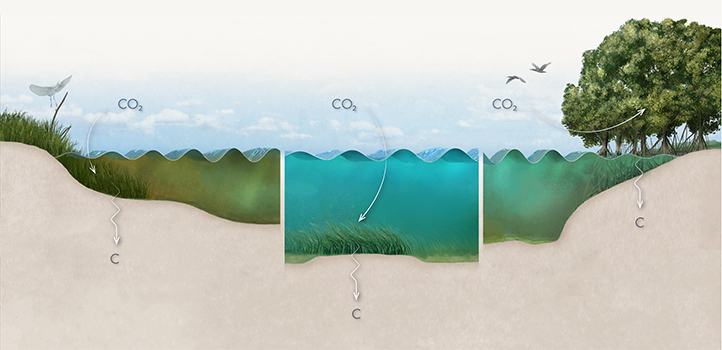


06 January, 2021

“Conserving the world's oceans and coastal ecosystems is a no-regrets strategy posing huge benefits for people and planet,” explains Carlos Duarte, KAUST’s leading marine ecologist. For three decades, Duarte has led research into “blue carbon” ecosystems that can help both mitigation and adaptation to climate change and that include coasts, sandy beaches, mangroves, kelp forests, salt marshes and seagrasses.
These ecosystems generate multiple benefits, both as carbon sinks and the other ecosystem services they provide such as habitats for fisheries and many marine species; regulators of coastal water quality; protectors from storms, floods and sea-level rise; and sources of food and employment opportunities from transport to tourism.
Marine ecosystems can reduce climate change through sequestering carbon from the atmosphere and oceans to then store it in the same marine ecosystems as blue carbon. Newly identified options for sequestering blue carbon show great promise — for example, previous research by Duarte and colleagues shows that types of macroalgae can store more carbon that other coastal plants.


Blue carbon ecosystems, such as mangroves, saltmarshes, kelp forests and seagrass meadows, act as carbon sinks by removing carbon from the atmosphere and storing it below ground in their sediments.
© 2021 KAUST; Xavier Pita
Now, Duarte and colleagues have estimated the potentials of Australia and China to store organic carbon in vegetated coastal systems, mangroves, salt marshes and seagrasses. They have also assessed the distribution of brown seaweeds2 and macroalgae3 and their potential contribution to carbon storage.
“Despite their importance, blue carbon ecosystems are under threat from climate change, fishing, pollution, marine pests and coastal urban development”
Duarte’s recent research also includes a strategy4 to rebuild marine life by 2050 that shows, for example, that restoring great whale stocks could sequester as much as 0.8 gigatons of carbon each year. “Whales do more than store carbon in themselves,” Duarte explains. “They move nutrients, accelerating productivity in the oceans and keeping them fertile. So as we rebuild the stocks of whales and other animals, the oceans will become more productive and capable of sequestering carbon. Improving the biosphere improves its capacity to achieve balance once more.”
Despite their importance, blue carbon ecosystems are under threat from climate change, fishing, pollution, marine pests and coastal urban development. For example, around half of the world's mangrove ecosystems have already been lost. “If these communities of mangroves, seagrasses and saltmarshes are to provide vital ecosystem services, then we need to protect them and to take any opportunity to restore these habitats,” says Duarte.